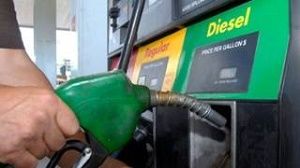4x4 Off Roading ›› Mechanical ›› Advantages of Diesel Engine Cars
Pros and Cons of Diesel Cars
DIESEL PROS AND CONS: Five reasons why diesel cars are popular. The main advantages of diesel engine cars is a trade off. It is a choice between the costing involved and the principle function, or use, of the vehicle.
What is a Diesel Car?
We will explain about the principle advantages of owning and running a diesel. But first, let's clarify what is the exact definition of a diesel car. In simple terms, a diesel car is a vehicle powered by a diesel engine.
Traditional examples include automobiles, trucks, locomotives (trains), tractors, buses, and boats. It is never a bad idea to weigh up and compare the pros and cons of diesel cars before you buy one.
You may be looking for a new automobile and unsure whether to buy a vehicle powered by diesel. Or, is your gut feeling telling you to stick with a gasoline-powered car?
Well help is at hand with these diesel pros and cons and the most important advantages of diesel engine cars.
5 Advantages of Diesel Cars
 1. Diesels Deliver Great Mileage
1. Diesels Deliver Great Mileage
As a general rule of thumb, there are big advantages of diesel fuel. Diesel cars usually deliver around 30% better fuel economy than their gasoline-powered engine counterparts.
The percentage assumes that all other things are equal. When that is the case fuel economy data highlights the key benefit of running diesel cars.
It is generally accepted that diesels deliver as much (and sometimes higher) fuel economy than many traditional gasoline-electric hybrid vehicles.
Of course the true figures and statistics are dependent on the range of car models involved. We also accept that automotive technology develops faster in certain sectors than others.
What if the price of diesel fuel increased 'significantly'? It would need to be at least 25% more expensive than gas to switch the cost advantage that diesel engine's deliver. Therefore, 'economically' diesel cars provide greater fuel efficiency.
2. Diesel Fuel is Efficient
It surprises many but diesel fuel is one of the most energy dense and efficient fuels available. The main reason is that it contains more usable energy than gasoline. So, as a rule diesel cars deliver better fuel economy than petrol vehicles.
3. No Need for Ignition Tune-ups
Diesel-powered cars never need ignition tune-ups. That saves on the cost of some mechanical repairs and spare parts. The reason for that is because they do not have spark plugs or distributors.
4. Diesels Retain Resale Values
Diesel cars and commercials often retain resale values better than petrol driven counterparts. This is because diesel engines get built more 'ruggedly'. They need to be - so that they can withstand the rigors of higher compression.
Diesel engines can go much longer time periods than gas-powered vehicles before they need major repairs. In simple terms, they boast longevity, reliability, and dependability. In turn, that helps to secure higher trade-in and resale values of diesel-powered cars.
5. More Torque = More Action
A diesel engine provides a lot more torque to the driveshaft than a gasoline equivalent. This is mostly due to the way it burns the fuel.
There is another benefit gained from all this extra torque. It means most modern diesel passenger cars will outrun their gas-powered counterparts from a standing start.
One undeniable advantage is the pulling power produced by diesel-powered cars and big trucks. They can all out-tow gas-powered vehicles and still deliver improved fuel economy advantages.
Disadvantages of Diesel Cars
Diesels engines are not maintenance free. You will need to change the oil and filters (including air filters) to keep them running properly. Thanks to cleaner diesel fuels, there is no longer a need to bleed excess water out of the system.
But, there are many diesel vehicles still in use that still get fitted with a fuel water separator. You do not need to be a trained mechanic to perform this task. But, the separation gadget needs to get emptied on a regular basis. You do this by draining contaminants and water manually.
It should be no surprise but you may need to hire a diesel mechanic or technician if your vehicle breaks down. This may become an expensive disadvantage of owning a diesel car. Neglecting diesel maintenance and service procedures could also create costly problems.
In general, diesel powertrains are more technologically advanced. Thus, they require specialist mechanics to conduct repairs and fit replacement parts.
As we mentioned before, experts consider diesel fuel to be more efficient. But, it rarely results in a high-speed performance. You might compare a gasoline-powered engine to a thoroughbred racehorse - fast and fiery. A diesel engine is slower, stronger, and more enduring - like a workhorse.
There is a constant need for diesel technology to improve. It gets used in passenger vehicles, trucks, buses, on farms and construction equipment. But, the government pressures us to produce low-emission diesel powertrains.
It has resulted in low-sulfur diesel fuels. But, specialized catalytic converters, advanced filters, and other devices need to cut down or destroy toxic emissions.
Gone are the days when diesel fuel was a lot cheaper than gasoline. Generally, it costs the same amount - or more nowadays. The pump price of diesel fuel is likely to continue to rise.
The main reason is because of the demanding competition from other users. They include commercial trucks, home heating oil, and industrial generators.
You might also enjoy reading about...
Learning how to repair and maintain your own car means there are hundreds of tasks you can fix without having to pay for the services of a trained mechanic.